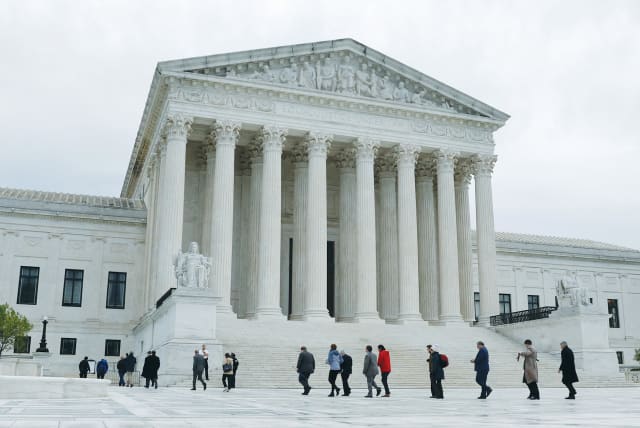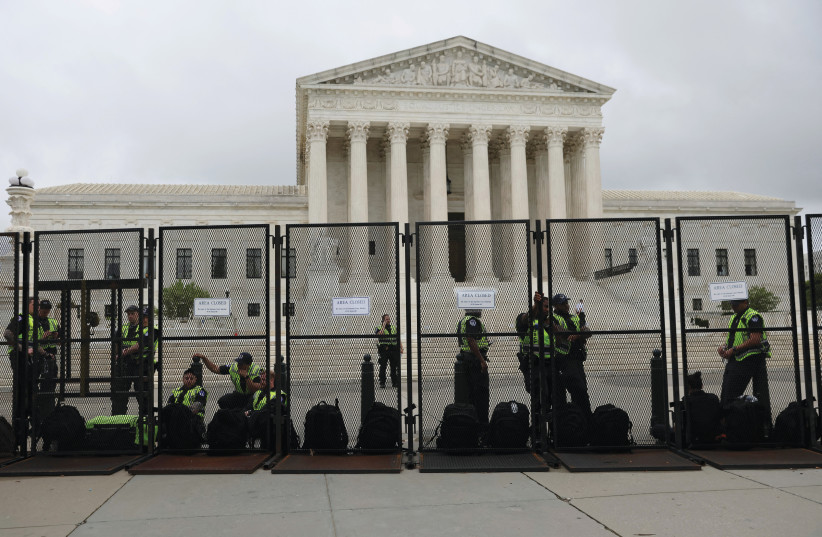Israel could learn a thing or two from history of US Constitution - opinion

Not unlike Israel, the US emerged from the War of Independence in a precarious political and security situation.
The debate surrounding the adoption of the US Constitution can offer valuable insights for Israel today, since we in Israel are grappling with many of the same issues that the founding fathers of the US had to confront. In particular: the need to protect the people from the dangers of big government and factionalism, the need to defend civil rights, the need for checks and balances and to define the role of the judiciary and the need for obtaining a broad consensus.
The need
Not unlike Israel, the US emerged from the War of Independence in a precarious political and security situation. British troops still remained on American soil; the Spanish in the south and Tories in Canada constituted potential security threats. The socioeconomic divides and diversity within the population (which came from different European nations, believing in different religions and occupying different social stations) as well as the divergent economic interests of the states presented formidable challenges to overcome.
Moreover, the fledgling republic was held together by a loose governmental framework (the Articles of Confederation), which did not enable it to enforce policies. However, despite their differences, the people were united by the common goal of preserving their hard-won liberty and creating a “more perfect union.” To do so it was obvious that the weak Articles of Confederation would have to be drastically changed.
A revolutionary conception of government
To this effect, a Constitutional Convention was convened in May 1787. While its mandate was to revise the Articles of Confederation, the delegates decided to scrap the Articles entirely and to begin from scratch to draft a new constitution. Work began in July and by September committees of delegates had completed the document.
This unique document drawn up in a relatively short period of time was successful due to the exceptional quality of the delegates who were guided by the philosophers of the Enlightenment. They incorporated lessons learned from existing models of government, shortcomings of the Articles of Confederation and who were willing to accept compromise.
The product was revolutionary in conception: a government by and for the people possessing a unique, egalitarian division of power among the three branches of government and a system of checks and balances between each of the branches (and in the case of the bicameral legislature within itself). The document contained provisions for amendment to maintain its relevance for future generations. The first ten, the Bill of Rights, passed soon after the redaction of the Constitution as a compromise to delegates from Massachusetts.
Separation of power, checks and balances and status of the judiciary
“In a free government the security for civil rights must be the same as that for religious rights,” wrote James Madison “If men were angels, no government would be necessary… In framing a government… you must first enable the government to control the governed; and in the next place oblige it to control itself... by so contriving the interior structure of the government as that its several constituent parts may, by their mutual relations, be the means of keeping each other in their proper places… It is equally evident, that the members of each department should be as little dependent as possible on those of the others, for the emoluments annexed to their offices.” – (The Federalist Papers, No. 51)
The status of the Supreme Court was both important and worrisome to the founding fathers, since unlike the executive branch that wielded the power of the military and the legislative branch which controlled the purse-strings, the judiciary had no such inherent power. It was therefore deemed incumbent to strengthen the power of the courts by appointing judges for lifetime positions (contingent upon good behavior) as a guarantee that they would be independent, loyal to the Constitution (rather than to a given regime) and maintain high standards of justice, honed through their life-long expertise.
The Supreme Court would be the sole body that would determine if a law contravened the Constitution, through a process known as Judicial Review. Though its decision on constitutional matters is quasi-final, there exists the possibility of Congress to override a Supreme Court decision by either amending the Constitution (a most difficult process which requires two-thirds of the legislators or state legislatures to propose such an amendment and three-quarters to ratify it) or by drafting a new one. The Supreme Court can itself rescind a decision on a future date should circumstances warrant.
Judicial review
“Federalist No. 78,” written by Alexander Hamilton, described the power of Judicial Review in which the Court had the power of overseeing the workings of government and to protect the people against the possible tyranny of the Legislator (whom the founding fathers believed would be the strongest branch of government). Though this power was not explicitly granted in the constitution and would not become canonized until Marbury v. Madison in 1803, it was recognized and debated among the delegates.
As many in Israel believe today, the Anti-Federalists, who opposed the constitution, objected to the governorship by the court and feared that such power granted the court could render it an absolute ruler. Hamilton answered:
“The complete independence of the courts of justice is peculiarly essential… If it be said that the legislative body are themselves the constitutional judges of their own powers… it may be answered that this cannot be the natural presumption, where it is not to be collected from any particular provisions in the Constitution. It is not otherwise to be supposed, that the Constitution could intend to enable the representatives of the people to substitute their will to that of their constituents.
“It is far more rational to suppose, that the courts were designed to be an intermediate body between the people and the legislature, in order, among other things, to keep the latter within the limits assigned to their authority. The interpretation of the laws is the proper and peculiar province of the courts.
“A constitution is, in fact, and must be regarded by the judges, as a fundamental law. It therefore belongs to them to ascertain its meaning, as well as the meaning of any particular act proceeding from the legislative body. If there should happen to be an irreconcilable variance between the two... the Constitution ought to be preferred to the statute, the intention of the people to the intention of their agents.” – (Federalist, No. 78)
The dangers of factions to a democracy
One of the issues that particularly worried the Founding Fathers was the danger of factionalism or, as Madison described it, “a number of citizens, whether amounting to a majority or a minority of the whole, who are united and actuated by some common impulse of passion, or of interest, adversed to the rights of other citizens, or to the permanent and aggregate interests of the community” (“extremism” in modern-day parlance).
Though factionalism in the ranks of the minority was worrisome, Madison believed it is all the more dangerous should it be found within the ranks of the majority,
“When a majority is included in a faction, the form of popular government, on the other hand, enables it to sacrifice to its ruling passion or interest both the public good and the rights of other citizens.” (ibid.)
The need for a consensus
The ratification process which required three-quarters of the states (nine out of 13) to approve the constitution was difficult. Though the approval of three-quarters of the states was obtained in June 1788 the founding fathers realized that there must be a consensus among all the states, and without the approval of the influential states such as New York and Pennsylvania, the constitution would be transient.
In order to convince the citizens of New York, John Jay, Hamilton and Madison wrote a series of brilliant essays titled The Federalist Papers which were published in the press. These presented arguments against the Anti-Federalists who opposed the adoption of a constitution. Many of the issues presented in those pages are currently being debated in Israel today.
The Federalist articles resulted in New York’s accepting the Constitution and within the next year the remaining states adopted it with the last state to adopt it in 1790. The Bill of Rights – the first 10 amendments to the constitution – was added in September 1789 and approved in 1791.
The constitution is the guiding force behind the US. The president, federal officers and all members of the military swear to defend it.
Though written at the end of the 18th century, many of the lessons from the debate over its adoption are of interest to us in modern-day Israel: namely the maintenance of equality between the three branches of government, the preservation of checks and balances, the need to maintain a strong judiciary but also the need to retain a path to override Supreme Court decisions, the importance of harnessing the talents of high-level visionaries and the need to maintain a broad consensus before initiating reform.
The author is a lecturer at the School of Media Studies at the College of Management, in Rishon Lezion, where he gives seminars on American political campaigns. A former senior military officer, he has written on US affairs and security issues.
Jerusalem Post Store
`; document.getElementById("linkPremium").innerHTML = cont; var divWithLink = document.getElementById("premium-link"); if (divWithLink !== null && divWithLink !== 'undefined') { divWithLink.style.border = "solid 1px #cb0f3e"; divWithLink.style.textAlign = "center"; divWithLink.style.marginBottom = "15px"; divWithLink.style.marginTop = "15px"; divWithLink.style.width = "100%"; divWithLink.style.backgroundColor = "#122952"; divWithLink.style.color = "#ffffff"; divWithLink.style.lineHeight = "1.5"; } } (function (v, i) { });

